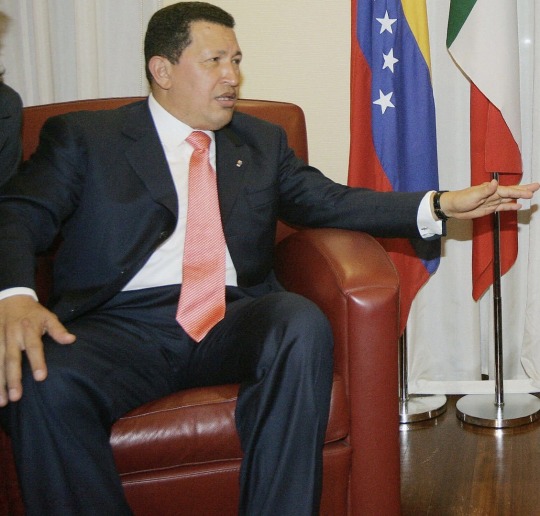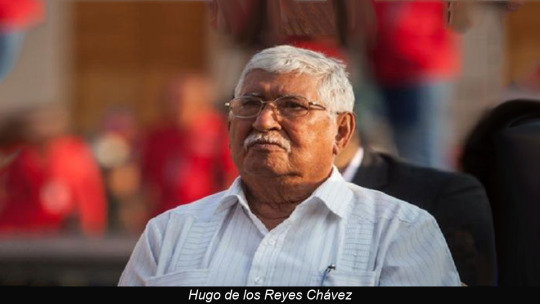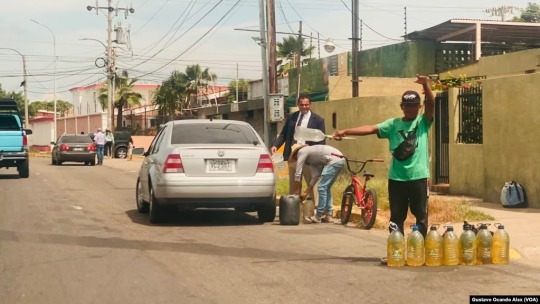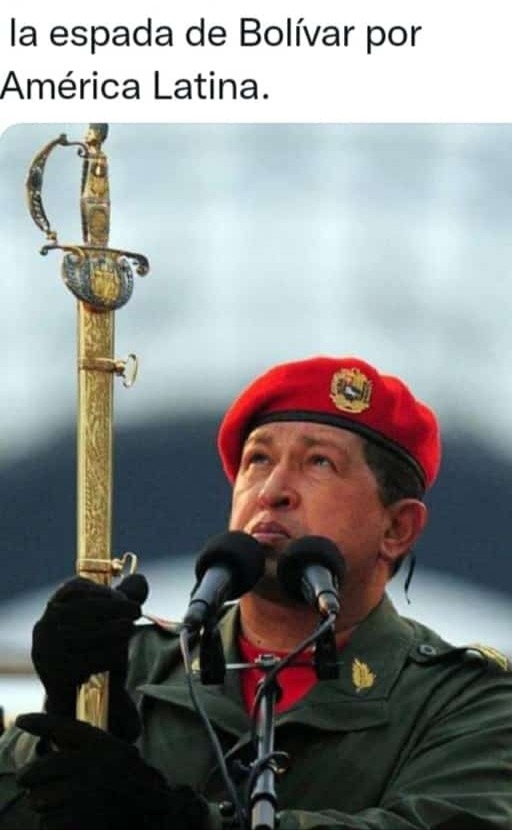#hugo chávez
Text

Hugo Chávez
#suitdaddy#suiteddaddy#suit and tie#suited daddy#men in suits#suitfetish#dick bulge#suit bulge#suited men#suited grandpa#suitedman#suit daddy#suited man#buisness suit#suitedmen#suits#venezuelan men#Venezuelan man#Hugo Chávez#hugo chavez
5 notes
·
View notes
Text
0 notes
Text
El primer vicepresidente del PSUV, Diosdado Cabello, expresó sus condolencias ante los restos mortales del maestro.
Familiares, miembros del Poder Popular, amigos y militantes del Partido Socialista Unido de Venezuela (PSUV) en el estado Barinas asistieron a la capilla ardiente para despedir al maestro Hugo de los Reyes Chávez, padre del líder de la Revolución Bolivariana, comandante Hugo Chávez Frías.
Continue reading Familiares despiden al padre del comandante Hugo Chávez

View On WordPress
0 notes
Text
Zoé Valdés | Brujería
Origen: Zoé Valdés | Brujería
View On WordPress
0 notes
Text
Recordando a Hugo Chávez ido a destiempo
Indicó que la independencia de Venezuela no seria posible sin la liberación de nuestra América y el Caribe, representados hoy en los líderes progresistas presentes en la actividad histórica., los jefes de Estado de Nicaragua, Daniel Ortega; de Argentina, Cristina Fernández; de Cuba, Raúl Castro; de Bolivia, Evo Morales; y el de República Dominicana, Leonel Fernández, entre otras delegaciones.
En…
View On WordPress
0 notes
Text
I take the chance to condemn again from the bottom of my soul and my guts the state of Israel. Damned be the state of Israel. Terrorists is murderers. And long live the Palestinian people. Heroic people, good people.
#Hugo Chávez#Venezuela#Palestine#Palestina#Israel#zionism#anti-zionism#colonialism#decolonialism#genocide
0 notes
Text
Cuál es la persona más famosa...? Hugo Chávez
¿Cuál es la persona más famosa (para bien o para mal) que has conocido?
Si hay algo bueno de ser periodista es que tienes acceso a mucha gente. Gracias a eso conocí y entrevisté al Comandante Hugo Chávez, presidente de Venezuela. Un ser extraordinario y muy carismático. Independientemente de lo que para otras personas él significa, tuve la suerte de acercarme desde antes de que saliera electo…

View On WordPress
0 notes
Text
How Latin America Could Be a Commodities Superpower! It Must Not Squander the Opportunity of the Next Commodity Boom
— August 10th, 2023 | Leaders | Natural Resources

A Combine Harvester Crops Soybeans in a Field. Image: Getty Images
Over five centuries Latin America and its 2bn hectares of land have been a vital source of food, fuel and metals for the world. First looted by colonisers for gold, silver, cotton and sugar, it later supplied rubber and oil to Europe and the United States. Now Latin America faces a chance to become the 21st century’s commodity superpower. This time, it must use that chance to boost development at home.
The transition to clean energy will spark decades of demand for the metals needed to multiply solar and wind parks, power lines and electric cars. Latin America holds more than a fifth of the global reserves for five critical metals. It already dominates the mining of copper, pervasive across green technologies, and holds nearly 60% of the world’s known resources of lithium, used in all main e-vehicle battery types. It is also rich in silver, tin and nickel. And it will benefit even if the green transition sputters, thanks to recent discoveries of oil that could see it quench 5-10% of the global demand by 2030.

As the world goes greener it will also become more populous. By 2050 it may have nearly 10bn mouths to feed, up from 8bn now. That will fuel demand for the carbs, proteins and delicacies that Latin America produces aplenty. It already supplies more than 30% of the world’s corn, beef, poultry and sugar, and 60% of the world’s soyabeans. Eight out of ten cups of the world’s Arabica coffee are made from the region’s beans. By 2032 its net food exports may exceed $100bn, the largest in the world by far.
The region’s draw as a trading partner will be accentuated by superpower rivalries. As the West scrambles to diversify away from China, it wants more deals with Latin America, a largely neutral and peaceful region. As monied rivals also eye its riches, a new great game is under way: just last month Vale, a Brazilian mining company, sold 13% of its green-metal arm to Saudi-owned entities for $3bn; China earmarked $1.4bn to develop lithium production in Bolivia; and Europe pledged to invest €45bn in Latin American green projects.
The problem is that Latin America’s affair with commodities has rarely been happy. Past struggles over the spoils have catalysed coups, inequality and populism. Hugo Chávez, a Venezuelan despot, squandered his country’s oil boom, spending lavishly while underinvesting in the industry and stuffing it with cronies. Oil windfalls in Colombia and Ecuador led to premature deindustrialisation. As export receipts have surged, so have domestic currencies, strangling other export industries and tying the region’s fate to a volatile market. Latin America has endured countless booms and busts. Local economies are lopsided: on average, 80% of its countries’ exports comes from the export of raw materials.
To do better this time round, Latin American countries must get several things right. First they need to make sure the boom does indeed take place. At present, politics is holding it back. As left-wingers and populists have gained power, many countries in the region have passed or threatened laws that would raise taxes, nationalise reserves or shut out foreign investment. It is right and proper that governments want to maximise their rents, especially given how often they have been robbed in the past. But if they seek to take too much, or keep changing their minds, their reserves will not soon be tapped.
Sharing the bounty with communities that live near mines is also crucial. Locals complain that extraction endangers their livelihoods. This year protests stopped work for months at a Peruvian copper mine accounting for 2% of the world’s supply. Those communities are frequently ignored by national governments; mining firms have too often been involved in scandals or ruined the local environment. Unless both do more to alleviate grievances, progress will remain precarious. Money, often fought over by local bosses, cannot solve it all.
And governments should spend their money wisely. When prices are high they should stash some of the windfall in rainy-day funds that they can tap into to prop up state budgets when times get tough. Instead of splashing cash in a bid to build cutting-edge battery factories from scratch, governments should invest in the basics that enable new industries to emerge: education, health, infrastructure and research. The World Bank estimates that Brazil’s infrastructure-financing gap until 2030 is almost $800bn, 3.7% of gdp each year. Latin America has a historic chance to grow out of its resource trap. It should seize it. ■
— This Article appeared in the Leaders Section of the Print Edition under the headline "Cash and Quarry"
#Leaders | Natural Resources#Latin America#Commodities Superpower#Opportunities#Europe | United States#Arabica Coffee#Saudi-Owned Entities#Brazil 🇧🇷#Bolivia 🇧🇴#Hugo Chávez#Oil Boom#Colombia 🇨🇴#Ecuador 🇪🇨#Peru 🇵🇪#The World Bank
0 notes
Text
Market-dominant minorities – tribes that control most of a country’s resources despite being minorities – are a major sources of tribal tensions in many nations. Whether it’s united by religion or ethnicity or something else, such a tribe’s key feature is its disproportionate wealth. White Venezuelans of European descent were an example of a market-dominant minority. But they were sidelined when Hugo Chávez, a representative of the country’s darker-skinned majority, took power.
Afghanistan provides another good example of this phenomenon. There, the small but wealthy Tajik minority was eventually overthrown by the Taliban. The latter were able to take power because they were backed by the country’s Pashtun majority. But the Taliban also had powerful backers outside Afghanistan. The United States provided the group with weapons. These were relayed to the Islamist group by Muhammad Zia-ul-Haq, the anti-communist dictator of neighboring Pakistan. Zia’s agenda wasn’t what US policymakers thought it was, however. His primary aim wasn’t defeating the communists in Afghanistan but empowering fundamentalist Islam. That’s a great example of America failing to recognize the true ambitions of its supposed allies, and mistakenly assuming that others wanted the same things it did.
The question of what should replace a recently overthrown market-dominant minority is a tricky one. One popular option is to move away from an authoritarian government and set up democratic institutions. But this can go disastrously wrong if policymakers fail to take tribal relations into account.
Navigating the transition isn’t easy. The market-dominant minority is understandably reluctant to give up its power. Western powers believe they’re righting a wrong by helping the majority tribe take power through democratic elections. Yet, this often breeds new troubles. On the one hand, the majority might seek revenge and start oppressing the minority that used to rule over it. Then there’s the minority itself. It might try to destabilize the new regime as it attempts to regain power. All these factors make this terrain very complex for foreign policymakers.
#tribalism#book : political tribes#usa#afghanistan#venezuela#hugo chávez#21st century#20th century#politics#inequality
0 notes
Text
El legado bolivariano
¿Qué rima con Venezuela?¡Secuela!¿La que Chávez ha dejado?¡Tarado!¿Con su afán nacionalista?¡Qué artista!
Su rabia antiimperialista,la estupidez (que es su aliada)y Caracas maniatadapor el gorila golpista.
***[Ilustración: Garrincha].

View On WordPress
0 notes
Text
Escasea gasolina en Venezuela, proliferan revendedores
Escasea gasolina en Venezuela, proliferan revendedores
#PeriodismoParaTi #SociedadNoticias
#Venezuela #HugoChávez #Gasolina @NicolasMaduro
@EmbaVenMexico @embajadave
Escasea gasolina en Venezuela, proliferan revendedores —1 dólar por litro en la calle, a domicilio hasta 2
Por Gustavo Ocando Alex | VOA
Maracaibo, Venezuela.- Un hombre de cabello cenizo mira de un lado al otro en la calle 43 de Maracaibo, parado con aparente nerviosismo en la parte trasera de su carro, mientras un joven se apresura a verter 5 litros…

View On WordPress
#Apuesta#Casino#EU#gabinete#Hugo Chávez#Nicolás Maduro#Presidente#SN#Sociedad#Sociedad Noticias#Sociedad-Noticias.com#sociedadNoticias#SociedadNoticias.com#Venezuela
0 notes
Text
22 años de purgas chavistas en Venezuela
A través de las “purgas”, hay represalias contra personas consideradas “inadecuadas” o “peligrosas” para la sobrevivencia del régimen. Según Ramón Cardozo, estaríamos frente a otra purga dentro de las elites chavistas.
Autor Ramón Cardozo Álvarez
3 de marzo de 2023: transeúntes pasan junto a un mural callejero con un retrato del fallecido presidente venezolano Hugo Chávez.
Las principales…

View On WordPress
1 note
·
View note
